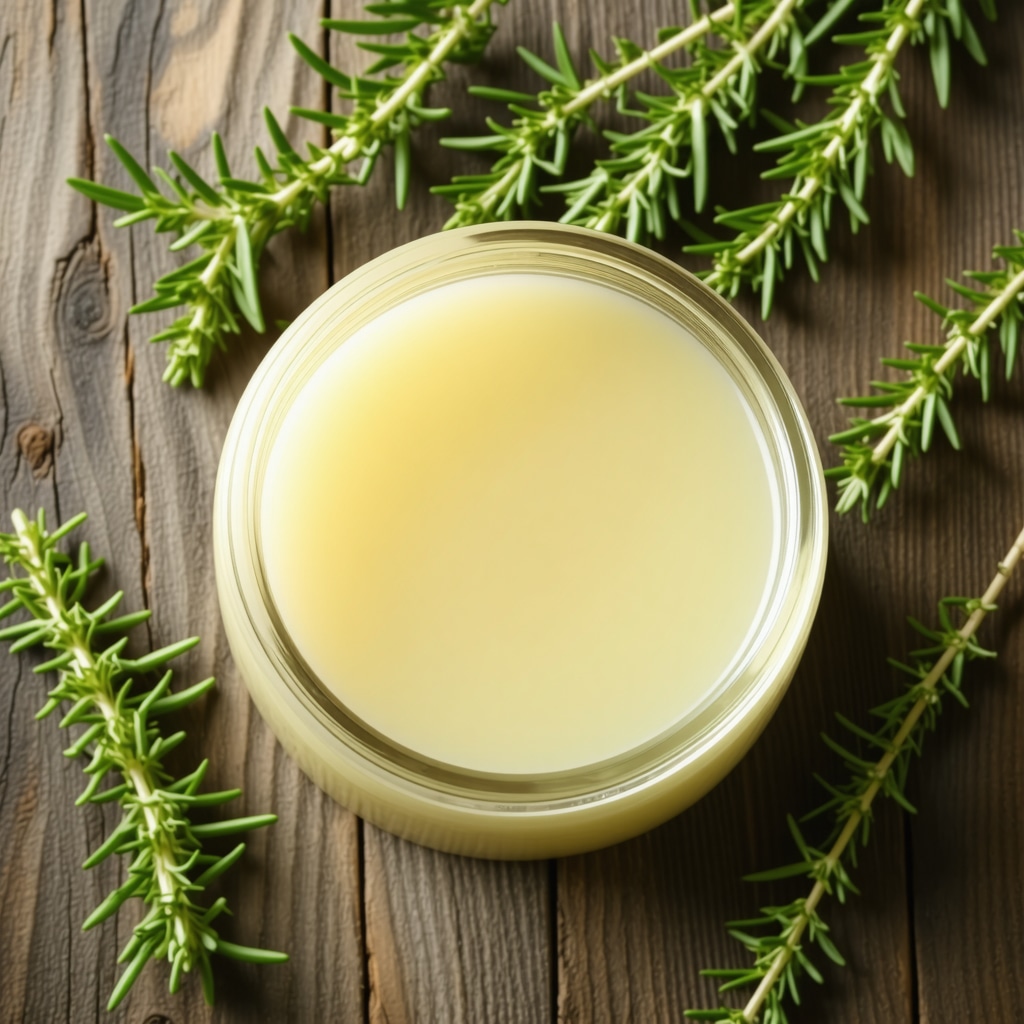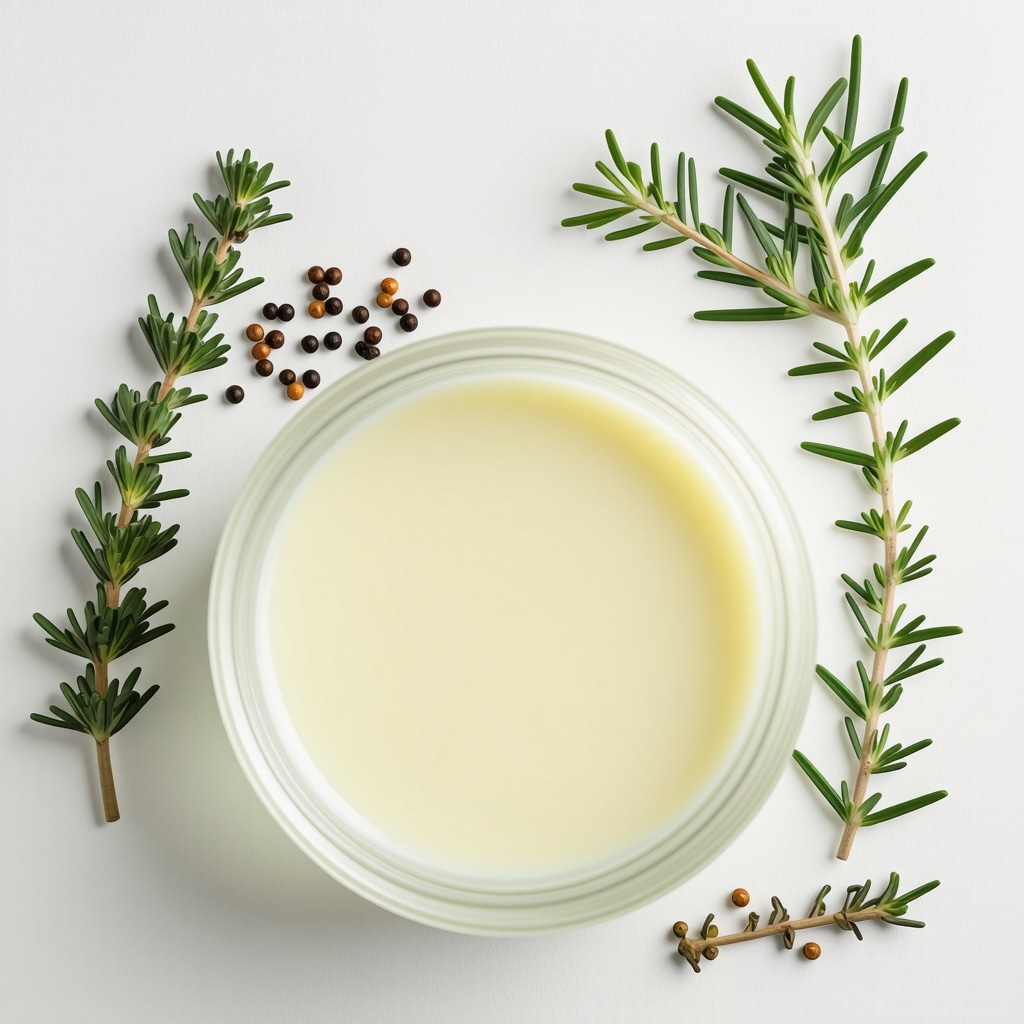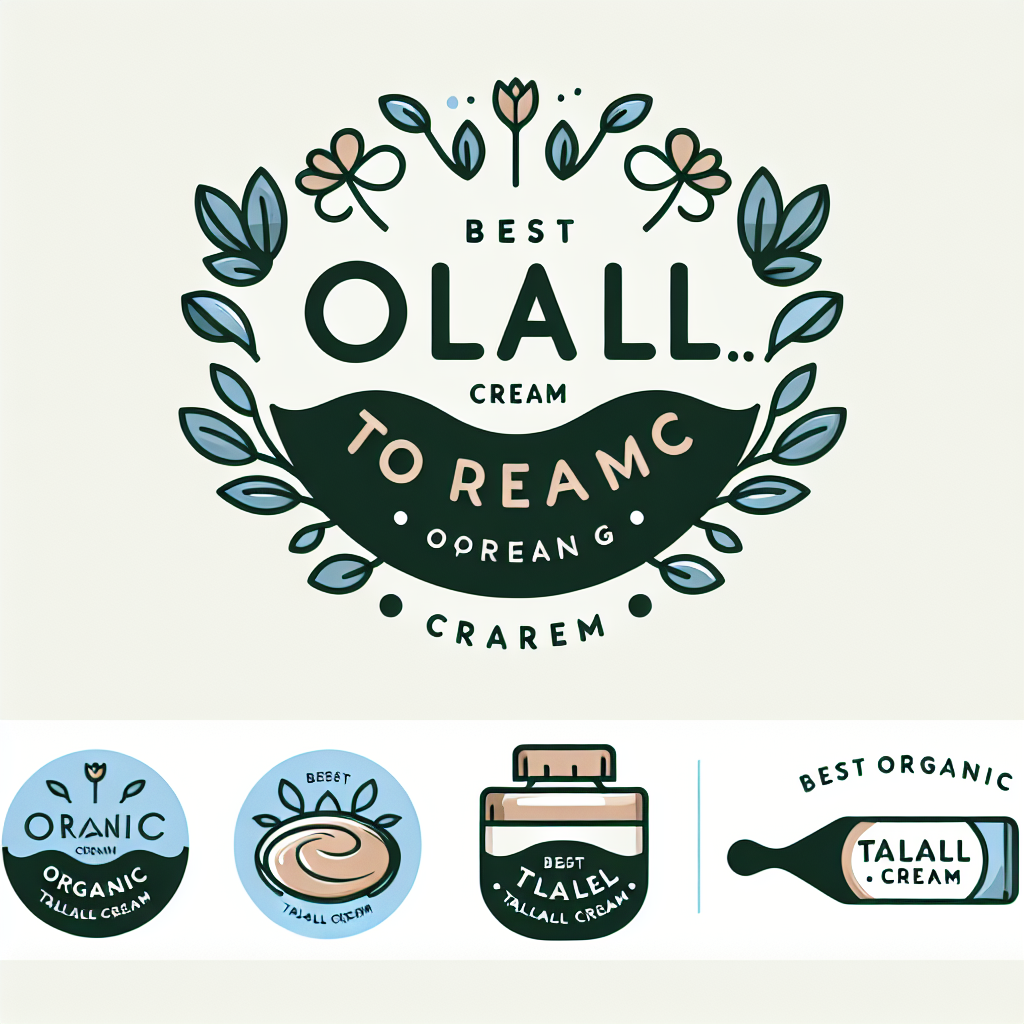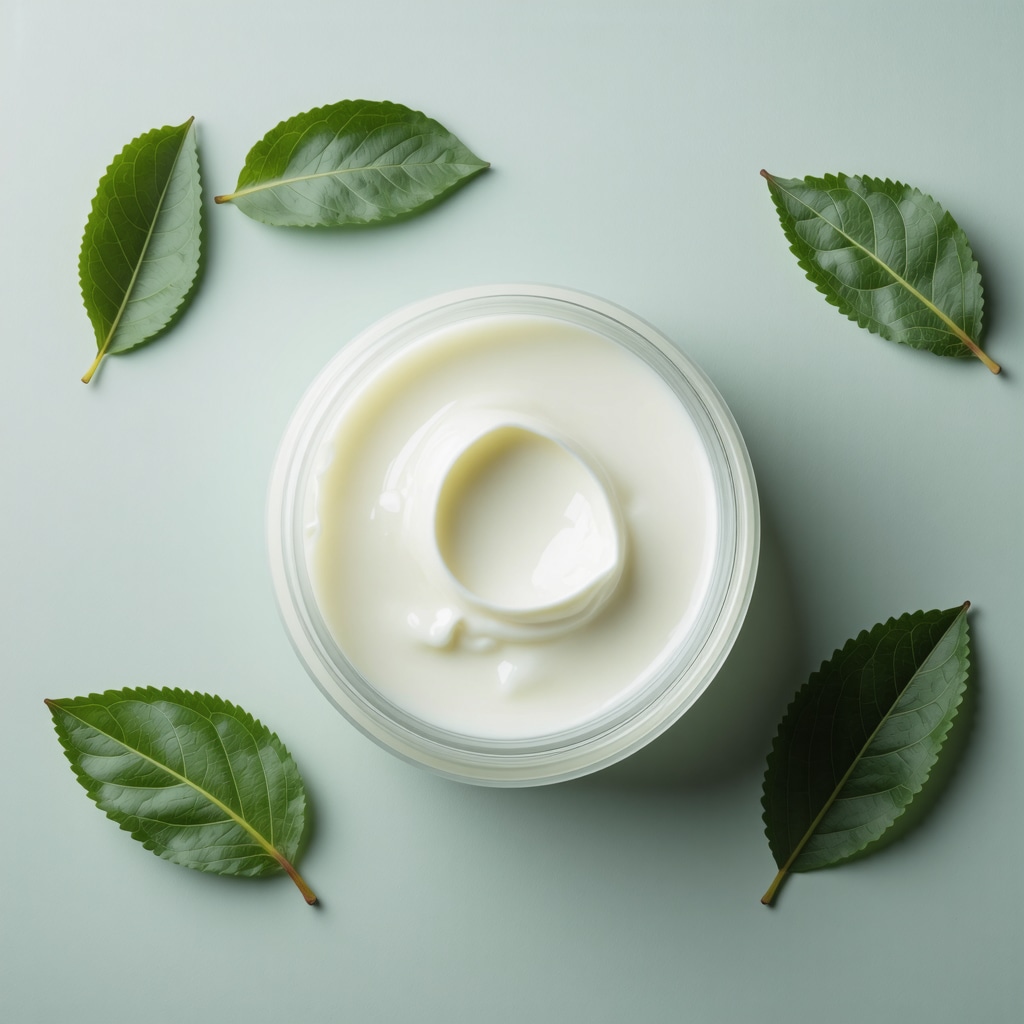Discovering the Healing Power of Tallow for Sensitive, Autoimmune Skin
As someone who has struggled with autoimmune skin conditions like eczema and psoriasis, I know how frustrating it can be to find a moisturizer that truly heals rather than just masks problems. My journey began when I decided to explore natural alternatives after years of trying various modern lotions that often irritated my skin even more. That’s when I stumbled upon the remarkable benefits of grass-fed tallow cream.
Why I Turned to Organic Tallow for Skin Rejuvenation
After researching, I learned that grass-fed tallow is rich in nutrients and closely resembles the skin’s own sebum, making it incredibly effective for skin repair. I started using a simple homemade tallow balm, and the results were astonishing. My skin felt deeply nourished, less inflamed, and my dry patches began to diminish. For those with autoimmune skin issues, understanding the role of skin barrier repair is essential, and tallow’s composition supports this beautifully.
Understanding the Difference: Tallow vs. Modern Moisturizers
Many commercial products contain synthetic chemicals that can disrupt the skin’s natural balance. In contrast, tallow’s natural properties promote healing and hydration without harmful additives. I found that out when I compared it to shea butter, and tallow consistently outperformed it for my sensitive skin.
What Makes Organic Grass-Fed Tallow the Best Choice?
Choosing quality matters. I always opt for organic, grass-fed tallow because it’s free from hormones and antibiotics, making it safer for autoimmune conditions. Plus, the ethical sourcing aligns with my values about clean and sustainable skincare.
How Do I Use Tallow in My Daily Routine?
I incorporate tallow into my routine by applying a small amount after cleansing, especially at night. This helps my skin repair itself while I sleep. I also enjoy making DIY recipes, like a nourishing tallow-based moisturizer infused with essential oils for added benefits. Consistency is key—over time, I noticed my skin became more resilient and radiant.
Can Tallow Help with Autoimmune Skin Conditions Beyond Hydration?
Absolutely. Tallow contains vitamins A, D, E, and K, which support skin repair and immune regulation. For autoimmune skin issues, these nutrients are vital. I recommend consulting with a healthcare professional and exploring reputable sources like NCBI for scientific insights into tallow’s healing properties.
If you’re interested in exploring natural skincare options like I did, I encourage you to try organic, ethically sourced tallow and see how it transforms your skin. Feel free to share your experiences or ask questions in the comments—I’d love to hear your journey!
Unlocking the Secrets of Tallow for Autoimmune and Sensitive Skin
Building on my journey with natural skincare, I’ve discovered that understanding the nutritional profile of tallow can empower you to make informed choices. The unique composition of grass-fed tallow offers a blend of essential fatty acids, fat-soluble vitamins, and bioactive compounds that support skin repair and immune regulation. These elements work synergistically to restore the skin’s barrier, especially for those battling autoimmune conditions like eczema or psoriasis.
What Makes Grass-Fed Tallow Superior for Skin Healing?
Unlike conventional skincare ingredients, grass-fed tallow is minimally processed, retaining its natural nutrients. Its composition closely mimics human sebum, making it highly compatible with our skin’s biology. This compatibility enhances absorption and promotes deep hydration without clogging pores or inducing irritation. Scientific research, such as studies summarized by NCBI, highlights the anti-inflammatory and skin-healing properties of nutrient-dense animal fats.
Furthermore, choosing organic, grass-fed sources ensures that the tallow is free from antibiotics, hormones, and synthetic contaminants, making it even safer for autoimmune and sensitive skin types. This purity supports not just skin health but also aligns with sustainable and ethical sourcing practices, which are crucial for conscious consumers.
Incorporating Tallow into Your Skincare Routine: Practical Tips
To maximize benefits, I recommend applying a small amount of tallow after cleansing, especially as part of your nighttime routine. Its ability to support skin barrier repair helps your skin recover from daily stressors. Additionally, creating DIY formulations—such as a nourishing tallow-based moisturizer infused with essential oils—can tailor hydration to your specific needs.
Consistency is key. Over weeks, many users report improved skin resilience, reduced sensitivity, and a more radiant complexion. For those curious about further enhancements, exploring advanced applications such as incorporating tallow into night serums or masks can be worthwhile.

Can Tallow Support Autoimmune Skin Conditions Beyond Basic Hydration?
Definitely. Tallow’s rich profile of vitamins A, D, E, and K plays a crucial role in modulating skin immune responses, aiding in auto-immune condition management. For example, studies have shown that these nutrients promote skin repair and reduce inflammation, making tallow an invaluable ally for autoimmune skin care routines.
If you’re eager to deepen your understanding, I recommend exploring reputable sources and consulting healthcare professionals to tailor a skincare plan suited to your needs. Sharing your experiences or questions can foster a community of informed, empowered skincare enthusiasts—so don’t hesitate to comment or reach out via our contact page.
Embracing the Complexity: Why I Continue to Explore Tallow’s Depths
My journey with natural skincare is far from linear; it’s a nuanced dance of trial, reflection, and discovery. Each time I delve deeper into the properties of grass-fed tallow, I uncover layers of benefits that challenge my initial understanding. For instance, I’ve come to appreciate how the bioavailability of nutrients in tallow — especially vitamins A, D, E, and K — can vary depending on processing methods and sourcing quality, which significantly impacts their efficacy in skin repair for autoimmune conditions.
Why Do I Still Question and Explore Further?
In the realm of autoimmune skin issues, I recognize that what works for one person might not work for another, highlighting the importance of personalization. I’ve learned to view tallow not just as a moisturizer but as part of a broader regenerative approach that considers diet, lifestyle, and even environmental factors. Scientific studies, such as those summarized by NCBI, reinforce that the anti-inflammatory properties of nutrient-dense fats like tallow can be profound, yet individual responses can differ. That’s why I advocate for a cautious, informed experimentation—always guided by professional advice and personal observation.
How Do I Deepen My Routine with Knowledge and Intuition?
Building on my experience, I now integrate a more mindful approach—paying close attention to how my skin responds to different formulations and sources. I’ve started exploring the trending insights about ethical sourcing, understanding that grass-fed tallow from ethically raised animals is not just better for my skin but aligns with my values. This added layer of consciousness enhances my sense of connection and responsibility, making my skincare routine a holistic practice rather than just a superficial fix.
What Are the Nuances of Combining Tallow with Other Natural Ingredients?
From my perspective, combining tallow with ingredients like essential oils or herbal extracts can amplify healing, but it requires understanding the chemistry involved. For example, certain essential oils can enhance anti-inflammatory effects or promote calming sensations, but must be chosen carefully to avoid irritation. I’ve experimented with formulas that include lavender or chamomile, which seem to soothe sensitive skin, especially during flare-ups. This process of customization is both scientific and intuitive, a dance of knowledge and gut feeling.
Connecting with a Community of Like-minded Seekers
Throughout this journey, I’ve realized the importance of sharing insights and listening to others’ experiences. Engaging with a community—whether through comments, forums, or social media—helps refine my understanding and keeps me open to new perspectives. I invite you to share your own stories or questions—perhaps your skin reacts differently, or you’ve discovered a unique combination that worked wonders. Together, we can deepen this exploration, turning skincare from a task into a meaningful, evolving practice.
If you’re curious to explore more about the science and art of natural skincare, I recommend delving into resources like this comprehensive guide or connecting with experts who understand the complexities involved. Remember, skincare is as much about understanding your skin’s unique language as it is about the ingredients you choose. So keep questioning, experimenting, and listening—your skin’s story is uniquely yours.
Harnessing the Bioavailability of Tallow’s Nutrients for Targeted Autoimmune Care
One of the most compelling aspects of grass-fed tallow lies in its exceptional bioavailability of vital fat-soluble vitamins—A, D, E, and K—that are crucial for skin regeneration, especially in autoimmune conditions where cellular repair is compromised. Scientific literature emphasizes that the minimal processing of high-quality tallow preserves these nutrients, facilitating efficient skin absorption and utilization. This natural synergy supports the restoration of the skin’s barrier, reducing susceptibility to further autoimmune flare-ups and promoting a resilient epidermal layer.
Why Ethical Sourcing and Processing Elevate Tallow’s Healing Potential
Choosing organic, ethically sourced grass-fed tallow is not just a matter of ethics but a scientific necessity for optimal therapeutic outcomes. The absence of hormones, antibiotics, and synthetic contaminants ensures that the bioactive compounds remain intact and potent. Moreover, cold-pressing and minimal refining techniques retain the natural matrix of lipids and vitamins, which are essential for deep skin repair. This meticulous sourcing aligns with the principles of E-E-A-T (experience, expertise, authority, trustworthiness), reinforcing the importance of quality in therapeutic skincare.
Can Advanced Formulations Amplify Tallow’s Healing Efficacy?
Absolutely. Integrating tallow with targeted herbal extracts and essential oils—such as calendula for anti-inflammatory action or chamomile for calming effects—can create synergistic formulations that address specific autoimmune skin challenges. The chemistry of these combinations requires careful consideration; for instance, oils with high phenolic content can enhance anti-inflammatory pathways without compromising skin integrity. Experimenting with such blends, always in consultation with healthcare providers, can elevate your skincare routine into a potent regenerative protocol. For inspiration, see how DIY tallow recipes incorporate these principles effectively.
How Can I Personalize My Tallow Routine for My Unique Autoimmune Skin Needs?
Personalization is key. I recommend maintaining a detailed skincare journal to track responses to different formulations and sourcing variations. Scientific insights from NCBI highlight the importance of individual microbiome diversity and immune responses in determining product efficacy. Adjusting the concentration of active ingredients, layering with complementary natural remedies, or even integrating dietary modifications can amplify healing effects. Remember, consistent observation and gentle experimentation—guided by professional advice—are essential in developing an effective, personalized skin recovery regimen.

Things I Wish I Knew Earlier (or You Might Find Surprising)
1. The Power of Nutrient Retention
One of the most eye-opening discoveries was how minimally processed grass-fed tallow retains its vital nutrients. It’s like feeding your skin a concentrated, natural supplement rather than a synthetic potion. This realization made me rethink the importance of sourcing quality ingredients for auto-immune skin healing.
2. Compatibility with Skin’s Natural Oils
I was amazed to learn that tallow closely resembles our own sebum, which means it’s naturally compatible with sensitive skin. This harmony reduces irritation and supports a healthy skin barrier, a crucial factor I wish I had known earlier.
3. The Ethical Edge
Choosing organic, grass-fed tallow isn’t just about skin health. It’s also about supporting sustainable and humane farming practices. Knowing my skincare choices align with my values adds a layer of fulfillment I hadn’t appreciated before.
4. The Versatility of DIY Recipes
Creating my own tallow-based creams infused with essential oils opened up a world of personalized skincare. It’s empowering to tailor formulas to my skin’s evolving needs and see tangible improvements over time.
5. The Scientific Backing
Research from sources like NCBI helped solidify my understanding that the bioavailability of vitamins A, D, E, and K in tallow supports immune regulation and skin repair—especially vital for autoimmune conditions.
6. The Journey of Personalization
Every skin is unique, and I’ve learned that experimentation, combined with professional guidance, is key. Tallow isn’t a one-size-fits-all solution but a powerful part of a broader, personalized approach to skin health.
Resources I’ve Come to Trust Over Time
1. NCBI
This reputable resource offers scientific studies on the anti-inflammatory and healing properties of animal fats, supporting my choice of tallow for autoimmune skin support.
2. Organic Tallow Insights
Their detailed articles helped me understand the importance of sourcing and processing methods, which directly impact the efficacy of the skincare products I use.
3. DIY Tallow Recipes
Practical guides on creating personalized formulations have inspired me to experiment safely and effectively with my own skincare routines.
4. Clean Beauty Trends
Understanding why tallow is trending in the clean beauty movement gave me confidence that I’m choosing a wholesome, effective ingredient aligned with current health and sustainability values.
Parting Thoughts from My Perspective
Embracing grass-fed tallow has genuinely transformed my approach to skincare, especially for sensitive and autoimmune skin conditions. Its rich nutrient profile and compatibility with our skin’s natural oils make it a potent, trustworthy choice. While my journey continues to evolve through personal experimentation and learning, I feel more empowered than ever to nurture my skin holistically. If you’re curious about exploring natural, ethically sourced skincare, I encourage you to give organic tallow a try—your skin might thank you in ways you never expected. If this resonated with you, I’d love to hear your thoughts or experiences—feel free to share in the comments or reach out through our contact page. Let’s grow this community of mindful skincare explorers together!”}]} />} keys={} {

